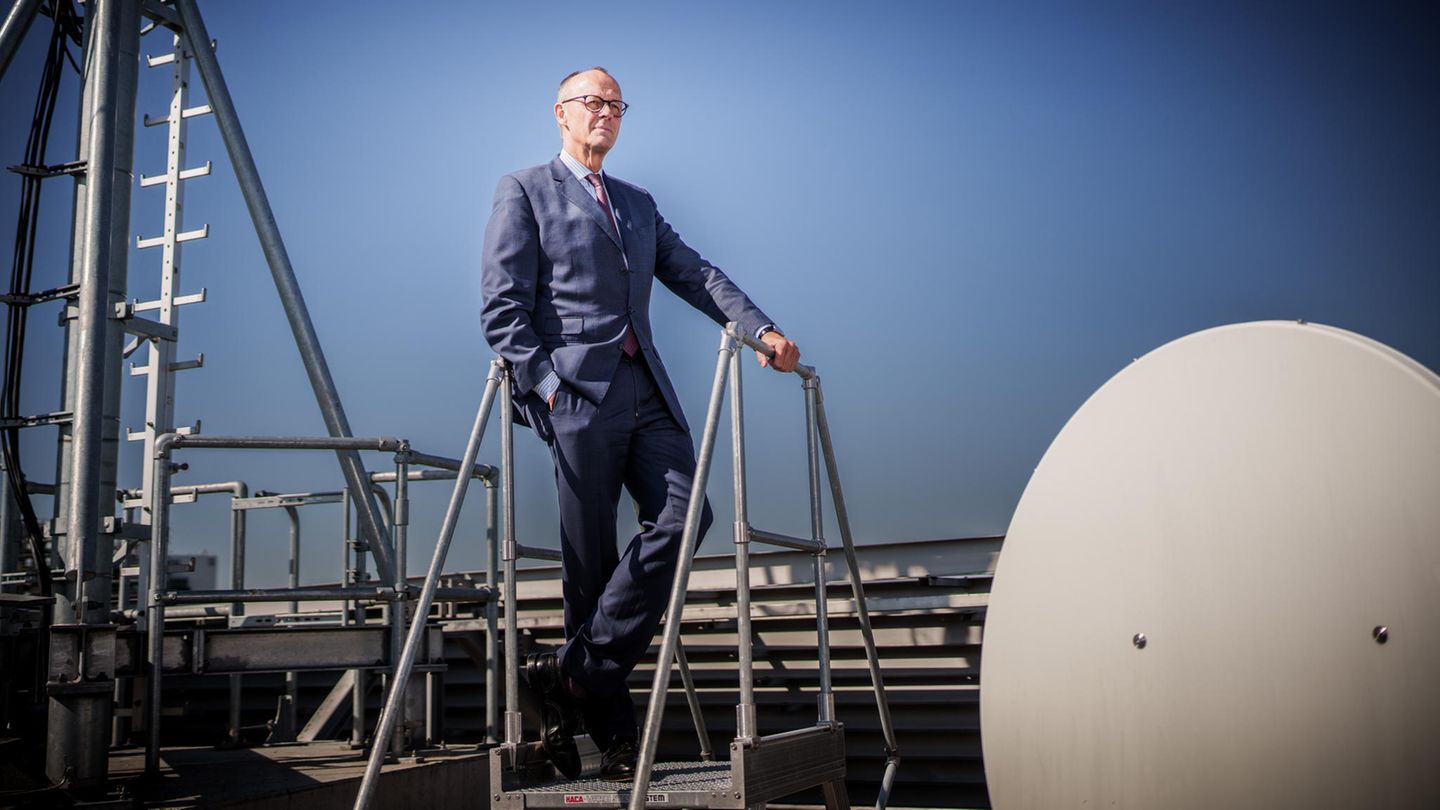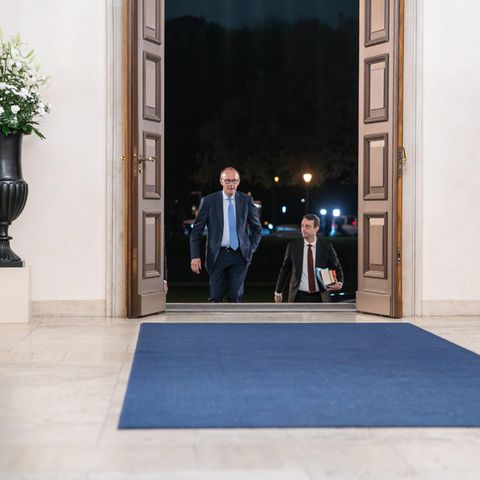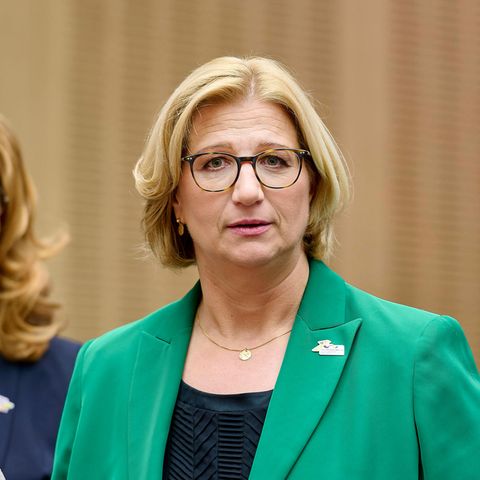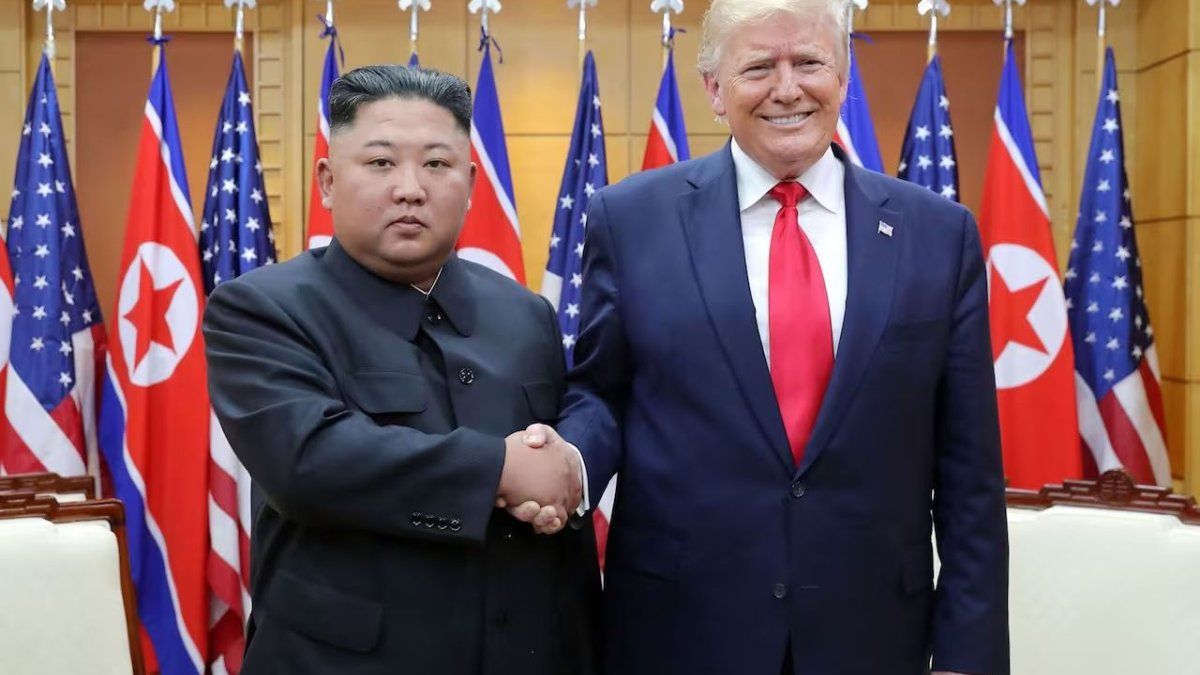Opinion
The Union’s debt poker could jeopardize Merz’s success as chancellor
Copy the current link
The next government must invest massively: in the economy, military, infrastructure. That requires money. There is a solution – it is in the hands of the Union.
Psssssst, please don’t talk about it! Did someone say debt brake reform? New special fund? More government spending? No, please move on! There’s nothing to see here.
This roughly describes the Union’s current strategy when it comes to the question of financing government spending. Everyone knows it, but no one is allowed to say it openly: there will be a (at least moderate) reform of the debt brake with the Union after the election, and a new special fund has long been debated.
A debt debate? Just not now!
When Friedrich Merz recently decided to reform the debt brake, it was not a complete industrial accident. Reforms are coming. But just not now, just not before the election, just don’t give anything to the rest of the traffic lights.
From an electoral perspective, the Union’s wait-and-see approach may be understandable. But if things go badly, this poker game of delaying a solution until after election day could endanger the success of Merz’s chancellorship. He simply didn’t have the money for his projects.
There is a solution for this: The Union could now propose a new special fund, for example for security and defense.
Waiting becomes a game of poker
Yes, the Union could also wait until election day to act as the nation’s savior and solve the state’s financial problems. A two-thirds majority for constitutional changes, which are needed for reforms to the debt brake or special funds, is not entirely unlikely in the next parliament.
But is it safe? Not that. The worst scenario for Merz goes like this: After the election, he is threatened with a blocking minority from the AfD and BSW. Both parties together are currently at around 25 percent in the polls. If the FDP and the Left miss out, there would be a risk that the AfD and BSW would occupy more than a third of the seats in parliament.
Would the BSW vote for a special defense fund? The AfD, which is looking ahead to the 2029 election, is in favor of reforming the debt brake? Rather no. Both parties enjoy showing off the establishment. The price for their consent would be high, possibly unaffordable.
There can be no new politics without fresh money
Friedrich Merz shouldn’t take this risk if he wants to become a successful chancellor. Without fresh money, the Union can still make great plans.
Hardly anyone disputes that massive investments are needed anymore: the Federation of German Industries alone considers state investments of up to 40 billion euros per year to be necessary. The economist Michael Hüther, certainly not a left-wing debt fetishist, is even calling for 60 billion euros.
The bridges are crumbling, the military needs to be expanded and the economy needs to be stimulated. All of this cannot be financed with a few savings in citizens’ money, more private capital and a little reduction in bureaucracy. The Union is now also noticing this.
The main culprit for the misery is the traffic lights
But it would be too easy to blame the conservatives for the fact that no political solution has yet been found. That was the task of the traffic light government. However, the SPD was not prepared to undertake any major austerity measures, and the FDP was not prepared to raise taxes or increase debt.
Yes, it’s true what the Social Democrats say: you can’t save your way out of the crisis. But you can’t get out of such a deep misery without saving and setting new priorities.
The SPD is currently acting like the most conservative force in the entire country: the welfare state should remain as it is – and in the end everyone will be better off. A beautiful election campaign fairy tale. And it’s understandable that the Union won’t go along with it.
Quick reform of the debt brake? Excluded!
This is one of the reasons why, in addition to the lack of time, a reform of the debt brake before the election is almost impossible. The question is too symbolically charged for all sides. A new special fund for defense and security, however, would be conceivable.
There are three reasons for this: firstly, it could be implemented more quickly, secondly, it would be clearly focused on urgently needed investments and thirdly – unlike industrial policy – it would probably be the lowest common denominator that the democratic center could still agree on in the election campaign.
Ultimately, the money from the old Bundeswehr fund has been used up or has been earmarked. The inauguration of Donald Trump in January, the dire war situation in Ukraine, Vladimir Putin’s hybrid war against Europe and the foreseeably unaffordable burden on defense in the federal budget are increasing the time pressure.
The Union can demonstrate a sense of responsibility
By pushing for such a special fund, Friedrich Merz could gain more financial freedom for the period after the election. Without the risk of a blocking minority. The Union could prove its political responsibility and take away one of the SPD’s last election campaign topics.
It’s like this: Most people in the country want politics to regulate things. They don’t want partisan tactics, they want to live in security. The Union can prove that it has both in mind: for a safe life in this country. And ultimately also for Friedrich Merz. This is not the time for poker games.
Source: Stern
I have been working in the news industry for over 6 years, first as a reporter and now as an editor. I have covered politics extensively, and my work has appeared in major newspapers and online news outlets around the world. In addition to my writing, I also contribute regularly to 24 Hours World.






